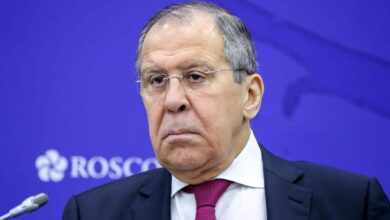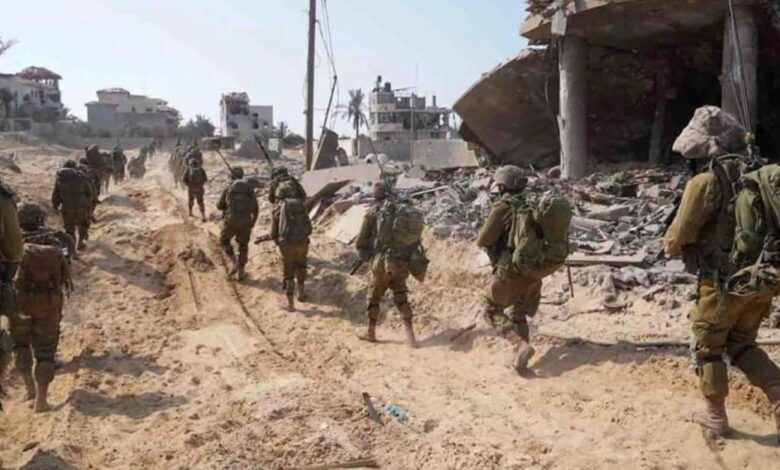
Israel Withdraws Troops from Southern Gaza: A Complex Move
Israel withdraws almost all troops from southern Gaza, a move that has sparked a whirlwind of reactions and questions. This significant shift in military presence marks a turning point in the Israeli-Palestinian conflict, leaving many to wonder about its implications for both sides.
While some view it as a sign of de-escalation and a potential step towards peace, others worry about the long-term consequences and the potential for renewed violence.
The withdrawal comes after years of tense relations and numerous military incursions in the Gaza Strip. It is a complex decision with far-reaching implications, driven by a combination of political, military, and humanitarian factors. This move has sparked international debate, with different countries and organizations expressing a range of opinions on its impact and potential outcomes.
Historical Context
The Israeli military presence in the Gaza Strip has been a complex and contentious issue, marked by periods of occupation, disengagement, and conflict. Understanding the historical context is crucial for grasping the current situation and the challenges involved in finding a lasting solution.
Israel’s initial deployment in the Gaza Strip stemmed from the 1967 Six-Day War, when Israel captured the territory from Egypt. Following the war, Israel established a military administration in Gaza, overseeing its governance and security. This period saw a significant influx of Palestinian refugees into Gaza, creating a densely populated and impoverished environment.
The Oslo Accords and Partial Withdrawal
The Oslo Accords, signed in 1993, aimed to establish a framework for a two-state solution, with the creation of a Palestinian state in the West Bank and Gaza. As part of the agreement, Israel withdrew from parts of the Gaza Strip, allowing the Palestinian Authority to assume control over certain areas.
However, Israel retained control over key border crossings and security responsibilities, leading to ongoing disputes and tensions.
The partial withdrawal, while significant, was not without its challenges. Israel continued to maintain a military presence in parts of Gaza, including the border areas, and the withdrawal was accompanied by a series of violent incidents. These events highlighted the complexities of the peace process and the difficulties in achieving a lasting solution.
The Disengagement Plan and the Hamas Takeover
In 2005, Israel implemented a unilateral disengagement plan, withdrawing all its troops and settlements from the Gaza Strip. This withdrawal was controversial, with some arguing that it would lead to a humanitarian crisis in Gaza, while others saw it as a necessary step towards peace.
Israel’s withdrawal of troops from southern Gaza marks a significant shift in the region’s dynamics, raising questions about the long-term implications for both sides. This move, while seemingly aimed at de-escalation, could also be seen as a strategic maneuver in the broader context of global power shifts, particularly in light of recent analysis on how to hobble Putin’s regime by accelerating the brain drain from Russia, as discussed in this insightful article analysis to hobble putin accelerate the brain drain.
Whether this withdrawal ultimately leads to lasting peace or further instability remains to be seen, but it undoubtedly adds another layer of complexity to the already volatile situation in Gaza.
Following the withdrawal, the Palestinian territories were divided into two separate entities: the West Bank, under the control of the Palestinian Authority, and the Gaza Strip, which was controlled by the Islamist group Hamas. Hamas, which had won the Palestinian legislative elections in 2006, refused to recognize Israel’s right to exist and continued to launch attacks against Israeli territory.
The Impact of the Disengagement
The disengagement from Gaza had a significant impact on both Israel and the Palestinian territories. For Israel, it represented a symbolic withdrawal from the occupied territories, but it also led to a rise in rocket attacks from Gaza. For the Palestinians, the disengagement was seen as a victory, but it also led to a humanitarian crisis as Hamas took control and imposed its own rules.
The withdrawal from Gaza was a complex and controversial decision that had both positive and negative consequences. It demonstrated Israel’s willingness to make concessions for peace, but it also highlighted the challenges of achieving a lasting solution in the absence of a genuine peace process.
Israel’s withdrawal of troops from southern Gaza raises questions about the future of the region, while the horrific attack on a Ukrainian train station, as seen in the article train station atrocity shows ukraine needs more military support against russia activists , underscores the urgent need for increased international support for Ukraine in its fight against Russian aggression.
The events in both Gaza and Ukraine highlight the tragic consequences of conflict and the importance of finding peaceful solutions to international disputes.
The disengagement plan, while a significant step, ultimately failed to bring lasting peace to the region.
Reasons for Withdrawal
Israel’s withdrawal of almost all its troops from southern Gaza in 2005 was a significant event, marking the end of its 38-year military occupation of the territory. The decision to withdraw was a complex one, driven by a confluence of factors, including political, military, and humanitarian considerations.
Political Considerations
The decision to withdraw was primarily driven by political considerations. The Israeli government, led by Prime Minister Ariel Sharon, believed that the continued occupation of Gaza was unsustainable and was becoming increasingly costly in terms of international condemnation, domestic political pressure, and security risks.
- International Pressure:The international community had long condemned Israel’s occupation of Gaza, calling for its withdrawal and the establishment of an independent Palestinian state. The withdrawal was seen as a way to appease international pressure and improve Israel’s image on the world stage.
- Domestic Political Dynamics:The withdrawal was also driven by domestic political considerations. Sharon’s government faced growing opposition from within its own ranks, with many members calling for a disengagement from the territories. The withdrawal was seen as a way to appease these factions and solidify Sharon’s political position.
- Security Concerns:The continued occupation of Gaza was also seen as a security risk. The territory was a breeding ground for Palestinian militancy, and Israeli troops were constantly targeted by attacks. The withdrawal was seen as a way to reduce the number of Israeli casualties and improve security.
Impact on Security
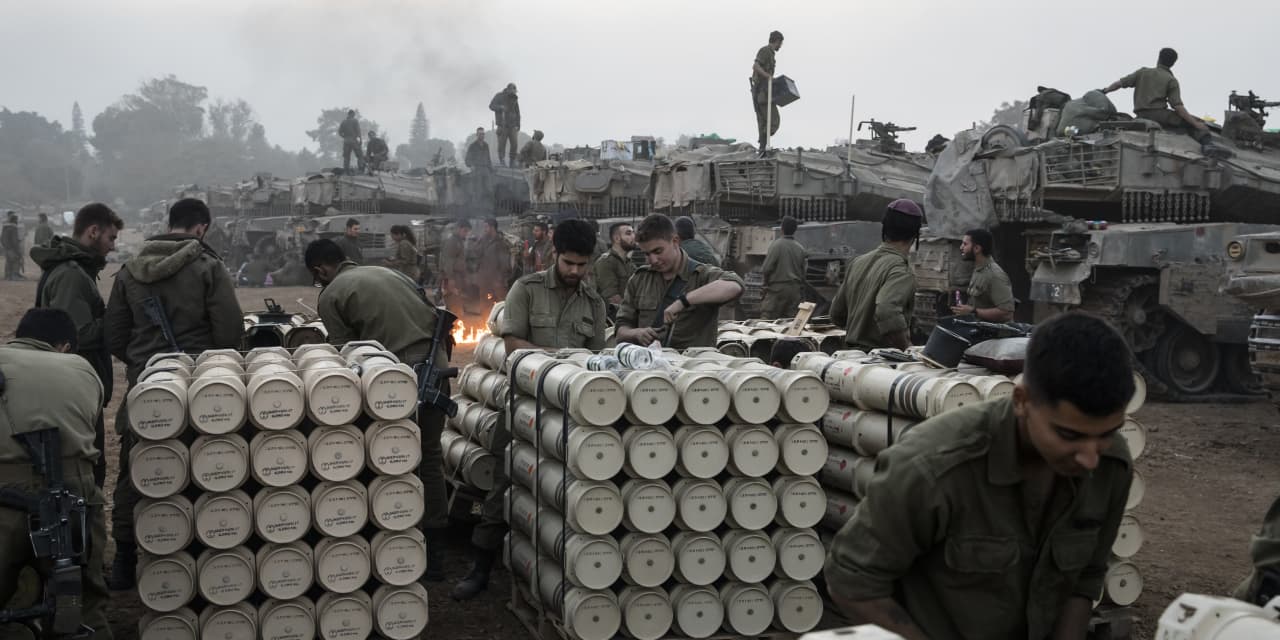
The withdrawal of Israeli troops from southern Gaza presents a complex and multifaceted security landscape, with potential implications for both Israel and Gaza. The potential for increased violence and instability in the region is a significant concern, necessitating a careful analysis of the security situation before and after the withdrawal.
Security Implications for Israel
The withdrawal of Israeli troops from southern Gaza could potentially lead to an increase in the risk of rocket attacks and other forms of violence against Israeli civilians. The Israeli military’s presence in southern Gaza has served as a deterrent against such attacks, and its removal could embolden militant groups to launch attacks.
- Increased Rocket Attacks:The withdrawal could lead to an increase in the number and frequency of rocket attacks from Gaza into Israel. Hamas and other militant groups may see this as an opportunity to launch attacks with impunity.
- Infiltration Attempts:The withdrawal could make it easier for militants to infiltrate into Israel from Gaza.
This could lead to attacks on Israeli civilians or infrastructure.
- Increased Instability:The withdrawal could contribute to increased instability in the region, making it more difficult for Israel to maintain security along its border with Gaza.
Security Implications for Gaza
The withdrawal of Israeli troops from southern Gaza could have both positive and negative security implications for Gaza. On the one hand, it could lead to a reduction in the number of Israeli airstrikes and ground incursions into Gaza, which have caused significant damage and civilian casualties.
On the other hand, it could lead to an increase in violence between Palestinian factions, as well as an increase in the risk of attacks from Israel.
Israel’s withdrawal of troops from southern Gaza brings a sense of uneasy calm, but the region remains volatile. It’s a reminder that even in the midst of seemingly positive developments, uncertainty lingers. This feeling of unease resonates with the current climate in the tech world, where the once-unstoppable momentum has slowed, and fear and loathing return to tech start ups.
Just as the Gaza situation is fragile, the tech landscape is constantly shifting, leaving many wondering what the future holds. The withdrawal of troops may signal a period of relative peace, but it doesn’t erase the underlying tensions that continue to simmer.
- Potential for Increased Violence:The withdrawal could lead to an increase in violence between Palestinian factions, as groups compete for control of the territory.
- Risk of Israeli Attacks:The withdrawal could lead to an increase in the risk of Israeli attacks on Gaza, as Israel may feel less constrained in its ability to respond to perceived threats.
- Potential for Increased Instability:The withdrawal could contribute to increased instability in Gaza, making it more difficult to rebuild and develop the territory.
International Reactions: Israel Withdraws Almost All Troops From Southern Gaza
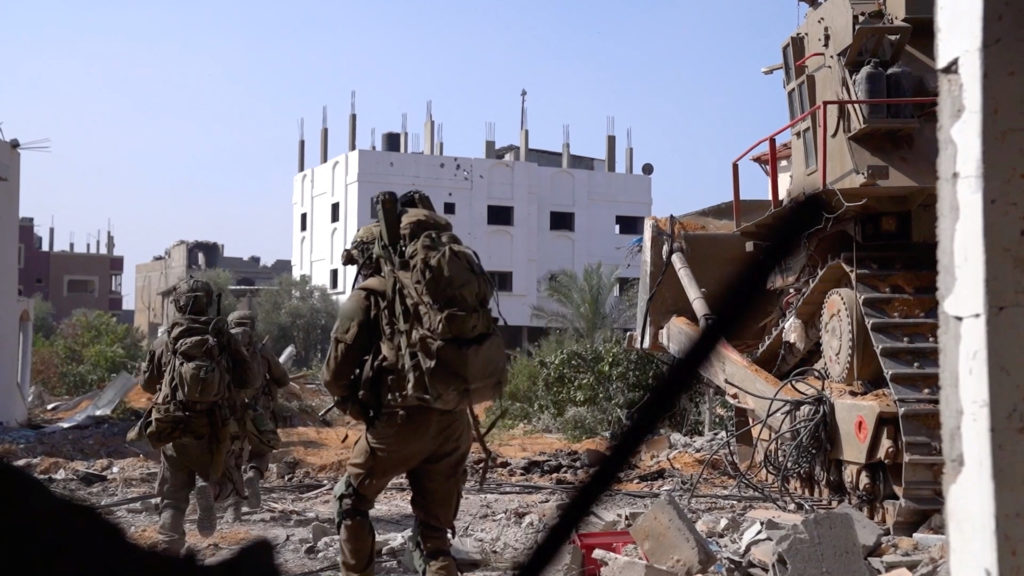
The withdrawal of Israeli troops from southern Gaza was met with a range of reactions from the international community, reflecting the complex geopolitical landscape of the region. While some welcomed the move as a step towards de-escalation and potential peace, others expressed concerns about the long-term implications for security and stability.
Reactions of Key International Actors, Israel withdraws almost all troops from southern gaza
The international community’s response to the Israeli withdrawal was varied, with some nations expressing cautious optimism while others voiced reservations.
- The United States, a staunch ally of Israel, expressed support for the withdrawal while urging both sides to pursue a peaceful resolution to the conflict. The US government emphasized the importance of maintaining a secure border and preventing the resurgence of militant activity in Gaza.
- The European Union, a key player in regional diplomacy, called for the withdrawal to be a stepping stone towards a lasting peace agreement. The EU pledged its continued support for humanitarian aid and reconstruction efforts in Gaza, while also emphasizing the need for a two-state solution.
- The United Nations, through its Secretary-General, welcomed the withdrawal as a positive development but cautioned against complacency. The UN urged Israel and the Palestinian Authority to engage in meaningful dialogue to address the underlying issues of the conflict, including the status of Jerusalem and the right of return for Palestinian refugees.
- Russia, a key player in the Middle East, expressed support for the withdrawal while calling for a comprehensive peace agreement that addresses the concerns of all parties involved. Russia has historically maintained close ties with both Israel and Palestine, seeking to play a mediating role in the conflict.
- China, an increasingly influential player in the region, expressed support for the withdrawal and called for a peaceful resolution to the conflict. China has sought to strengthen its ties with both Israel and Palestine, positioning itself as a neutral mediator in the conflict.
Positions of Different Countries
The withdrawal of Israeli troops from southern Gaza sparked diverse reactions from various countries, highlighting the complex geopolitical landscape of the region.
- Arab states, particularly those bordering Israel, expressed mixed reactions. Some welcomed the withdrawal as a positive step towards de-escalation, while others remained skeptical about its long-term impact on security and stability. Egypt, which has played a significant role in mediating between Israel and Hamas, expressed cautious optimism, urging both sides to seize the opportunity for peace.
- Some European countries, particularly those with a history of supporting Palestinian rights, expressed cautious optimism about the withdrawal, emphasizing the need for a comprehensive peace agreement that addresses the underlying issues of the conflict. However, others, concerned about the potential for instability, urged Israel to maintain a strong security presence along the border.
- Several countries, including India and South Africa, expressed support for the withdrawal, emphasizing the need for a peaceful resolution to the conflict. These countries, with their own histories of struggle against colonialism and apartheid, have long supported the Palestinian cause.
Positions of International Organizations
International organizations played a crucial role in responding to the Israeli withdrawal, providing humanitarian aid, advocating for peace, and monitoring the situation on the ground.
- The International Committee of the Red Cross (ICRC) expressed concern about the humanitarian situation in Gaza, urging all parties to ensure the safety of civilians and provide access for humanitarian aid. The ICRC has been actively involved in providing medical care, food, and other essential services to the Palestinian population in Gaza.
- Human Rights Watch (HRW) called for a thorough investigation into alleged human rights violations committed by both sides during the conflict. HRW has been a vocal critic of Israeli military actions in Gaza, documenting numerous instances of civilian casualties and destruction of infrastructure.
- Amnesty International (AI) urged Israel to lift the blockade on Gaza, arguing that it constitutes collective punishment of the Palestinian population. AI has consistently criticized Israel’s policies towards Gaza, highlighting the impact on human rights and the need for accountability.
Potential Implications of the Withdrawal on Regional and Global Diplomacy
The Israeli withdrawal from southern Gaza had significant implications for regional and global diplomacy, potentially influencing the dynamics of the Israeli-Palestinian conflict and broader Middle East peace efforts.
- The withdrawal could potentially create an opportunity for renewed peace negotiations between Israel and the Palestinians. However, the success of such negotiations would depend on the willingness of both sides to address the core issues of the conflict, including the status of Jerusalem, the right of return for Palestinian refugees, and the establishment of a Palestinian state.
- The withdrawal could also have implications for regional stability, particularly in light of the ongoing tensions between Israel and its neighbors. The withdrawal could potentially reduce the risk of escalation, but it could also embolden Hamas and other militant groups, potentially leading to further instability.
- The withdrawal could also have implications for global diplomacy, as it could influence the international community’s approach to conflict resolution in the Middle East. The withdrawal could potentially serve as a model for future peace efforts, but it could also raise concerns about the potential for instability and the need for strong international oversight.
Future Outlook
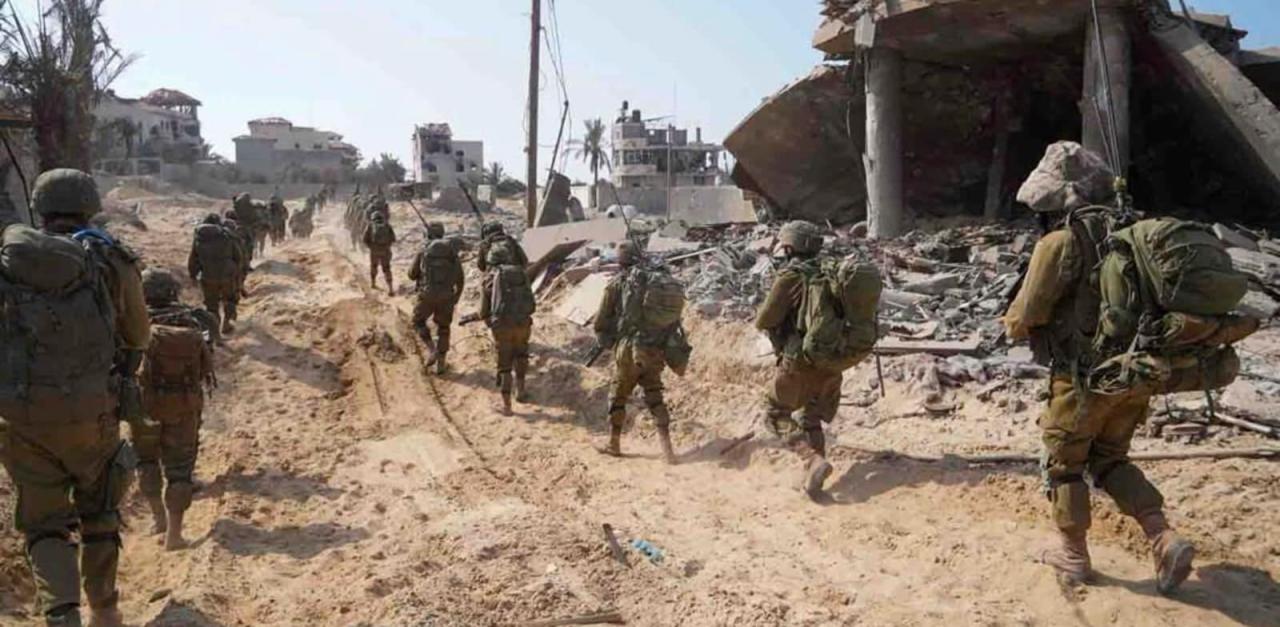
The withdrawal of Israeli troops from southern Gaza marks a significant moment in the Israeli-Palestinian conflict, but its long-term implications remain uncertain. The potential for renewed conflict is a serious concern, while the possibility of a more peaceful resolution also exists.
The withdrawal presents both challenges and opportunities for both sides, and how they navigate these will shape the future of the conflict.
Potential for Renewed Conflict
The withdrawal of Israeli troops does not automatically guarantee peace. The underlying issues that have fueled the conflict, such as land ownership, security concerns, and the status of Jerusalem, remain unresolved. The potential for renewed violence is a real concern, particularly given the history of conflict in the region.
- Hamas’s Role:Hamas, the Islamist group that controls Gaza, has vowed to continue its fight against Israel, and may see the withdrawal as an opportunity to consolidate its power and launch attacks.
- Security Concerns:Israel may be concerned about the potential for cross-border attacks from Gaza, especially if Hamas is able to acquire more advanced weaponry.
- Economic and Social Factors:The withdrawal could exacerbate economic and social problems in Gaza, leading to further instability and a potential for violence.
Path Towards a More Peaceful Resolution
Despite the risks, the withdrawal could also create opportunities for a more peaceful resolution. The withdrawal could create a space for dialogue and negotiations, and could potentially lead to a reduction in violence.
- Improved Humanitarian Situation:The withdrawal could lead to improvements in the humanitarian situation in Gaza, allowing for greater access to aid and resources.
- Economic Development:The withdrawal could create opportunities for economic development in Gaza, potentially leading to greater stability and reduced tensions.
- International Support:The international community could play a more active role in supporting peace efforts, including by providing financial assistance and diplomatic support.
Summary
The withdrawal of Israeli troops from southern Gaza is a significant event that will undoubtedly have lasting effects on the region. While the immediate impact may be a decrease in violence and a shift in military dynamics, the long-term consequences remain uncertain.
The success of this move hinges on the ability of both sides to engage in dialogue, address underlying issues, and work towards a peaceful resolution. Only time will tell if this withdrawal will truly pave the way for a more stable and secure future for both Israelis and Palestinians.



